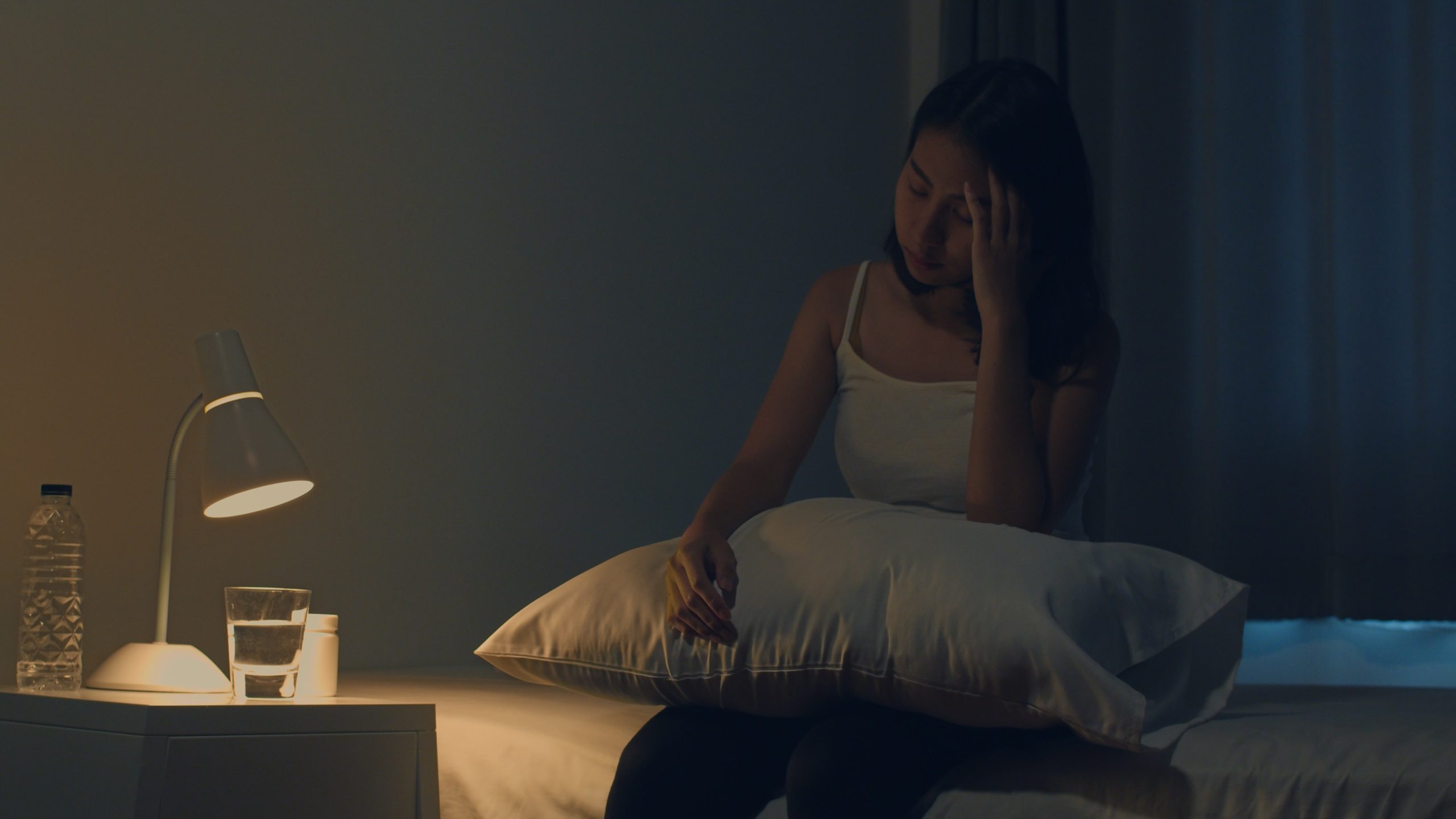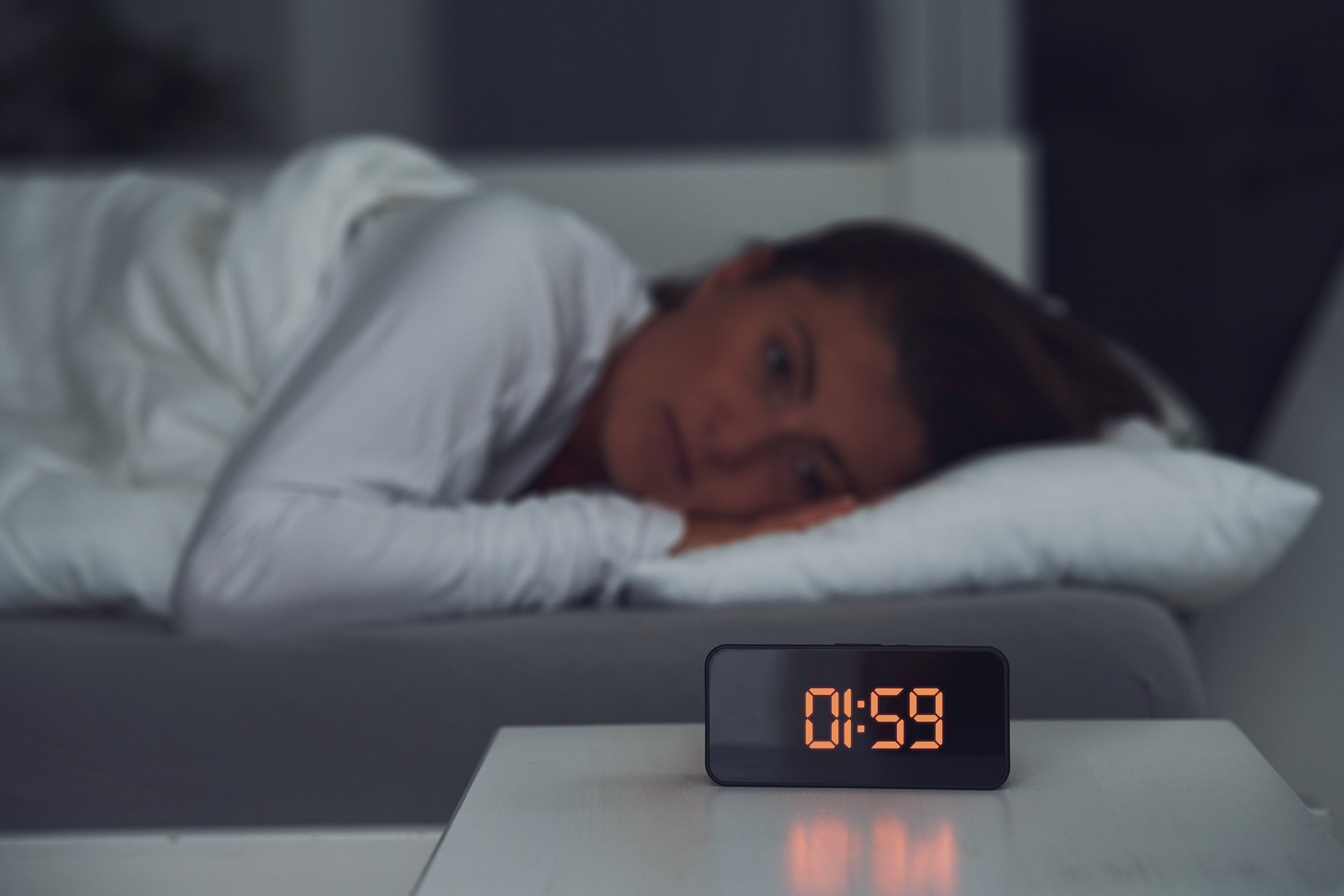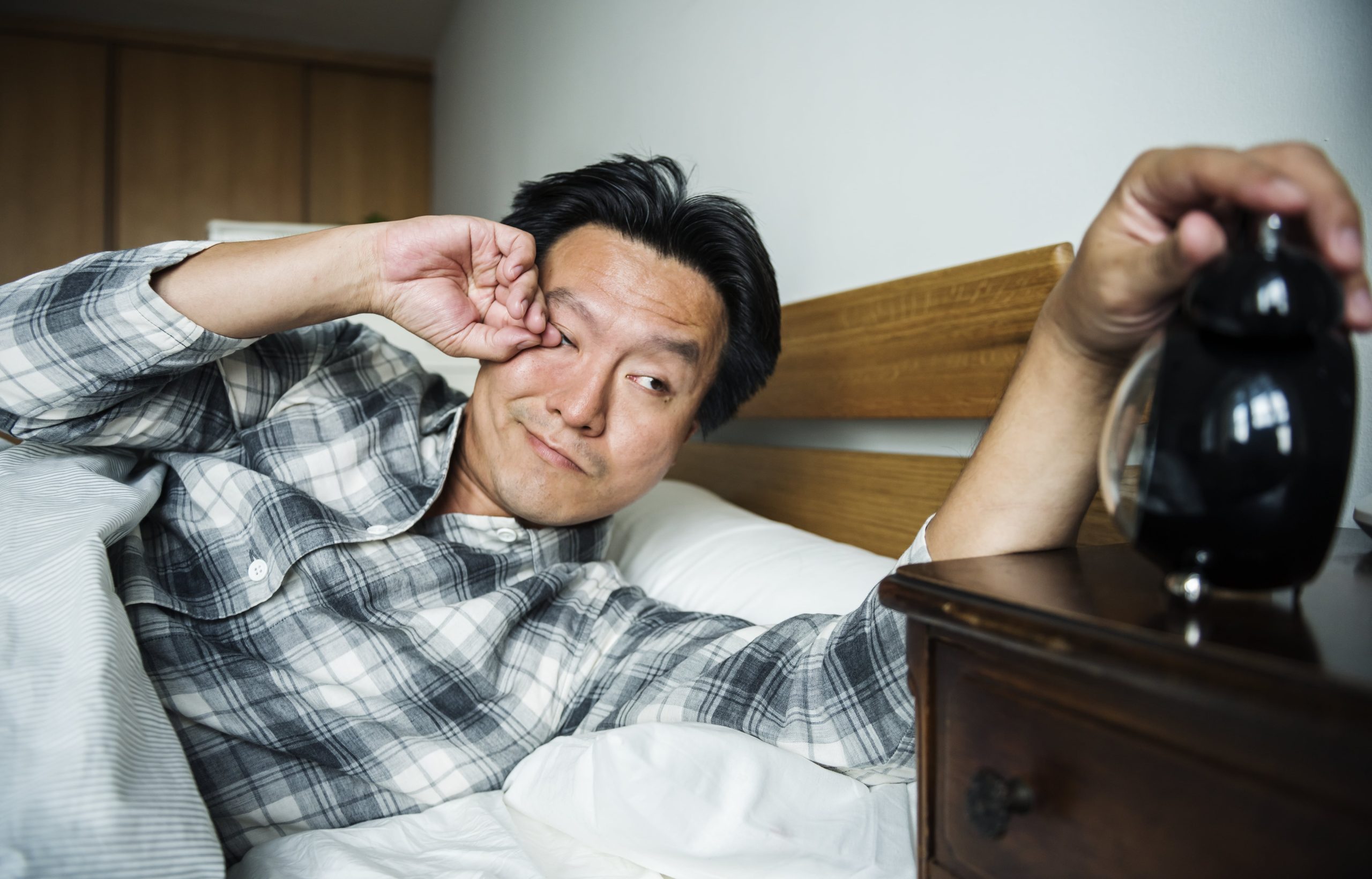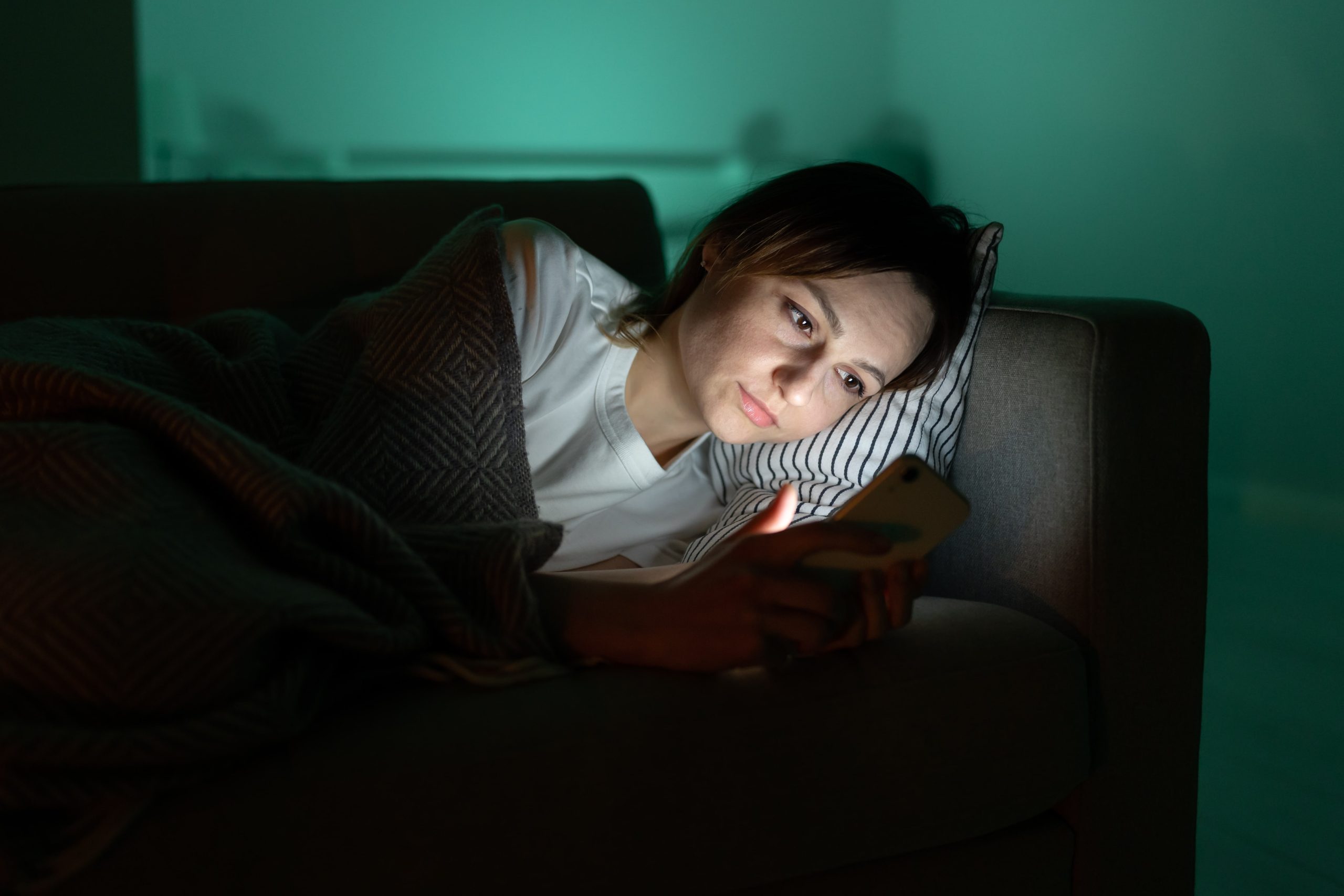Natural Sleep Remedies: Discover Effective Natural Sleep Aids
5 December 2022

Sleep is essential for our overall health and well-being. However, many people struggle with falling asleep or staying asleep throughout the night. If you’re tired of tossing and turning, it’s time to explore the world of natural sleep remedies. In this comprehensive guide, we will delve into the most effective natural sleep aids and provide you with valuable insights to help you achieve a restful night’s sleep.
Understanding the Importance of Sleep
Before we dive into natural sleep remedies, let’s first understand why sleep is crucial for our bodies and minds. Sleep plays a vital role in restoring and rejuvenating our physical and mental health. It allows our bodies to repair tissues, consolidate memories, regulate hormones, and strengthen our immune system. Without sufficient sleep, we may experience fatigue, lack of focus, mood swings, and even compromised immune function.



What Are Natural Sleep Remedies?
Natural sleep remedies are safe and non-habit-forming alternatives to pharmaceutical sleep aids. They consist of various techniques, lifestyle adjustments, and herbal supplements that can help improve the quality and duration of your sleep. Unlike prescription medications, natural sleep aids provide a holistic approach to sleep, addressing underlying causes and promoting a healthy sleep routine.
Lifestyle Adjustments for Better Sleep
Sometimes, making simple changes to your lifestyle can significantly impact your sleep quality. Here are some effective lifestyle adjustments to consider:
- Establish a consistent sleep schedule: go to bed and wake up at the same time every day, even on weekends. This routine helps regulate your body’s internal clock and improves sleep quality.
- Create a calming bedtime routine: develop a relaxing routine before bed to signal your body that it’s time to sleep. This may include reading a book, taking a warm bath, or practising gentle stretching exercises.
- Limit stimulants and electronic devices: avoid consuming caffeine and nicotine close to bedtime, as they can interfere with your sleep. Additionally, the blue light emitted by electronic devices can disrupt your natural sleep cycle, so it’s best to limit their use before bed.
- Create a sleep-friendly environment: Make your bedroom a peaceful and comfortable space. Ensure the room is dark, quiet, and at a cool temperature. Consider using blackout curtains, earplugs, or a white noise machine if necessary.
Herbal Supplements for Natural Sleep Aid
Herbal supplements can be a valuable addition to your sleep routine as natural sleep aids. They offer gentle, natural support to help you relax and fall asleep more easily. Here are some popular herbal sleep aids:
- Valerian root: valerian root is a herb known for its calming properties. It can reduce anxiety and promote deep, restful sleep. You can find valerian root in supplement form or as a tea.
- Chamomile: chamomile is a soothing herb that has been used for centuries to aid sleep. Enjoy a cup of chamomile tea before bed to unwind and prepare for a peaceful night’s sleep.
- Lavender: lavender has a relaxing scent that can help alleviate insomnia symptoms. Use lavender essential oil in a diffuser or add a few drops to your pillowcase to create a tranquil sleep environment.
- Passionflower: passionflower is a natural sedative that can reduce anxiety and promote relaxation. It is available in various forms, including capsules, teas, and tinctures.
The Power of Relaxation Techniques
In addition to lifestyle adjustments and herbal supplements, relaxation techniques can play a significant role in promoting better sleep. These techniques help calm the mind and prepare the body for rest. Here are a few effective relaxation techniques to try:
- Deep breathing: practise deep breathing exercises to activate the body’s relaxation response. Inhale deeply through your nose, hold for a few seconds, and exhale slowly through your mouth. Focus on the sensation of your breath to help clear your mind and relax your body.
- Progressive muscle relaxation: this technique involves tensing and then releasing each muscle group in your body, starting from your toes and working your way up to your head. By consciously relaxing your muscles, you can release tension and prepare your body for sleep.
- Meditation: meditation is a powerful tool for calming the mind and promoting mindfulness. Find a quiet space, sit comfortably, and focus your attention on your breath or a specific object. Allow thoughts to come and go without judgement, cultivating a sense of peace and relaxation.
- Yoga: gentle yoga poses, such as forward bends, spinal twists, and restorative poses, can help release tension and promote relaxation. Incorporating a short yoga practice into your bedtime routine can prepare your body for sleep.
The Role of a Sleep-Friendly Diet
Believe it or not, your diet can have an impact on your sleep quality. Certain foods and beverages can promote relaxation and enhance your sleep. Consider the following:
- Warm milk: a classic remedy, warm milk contains tryptophan, an amino acid that supports the production of serotonin, a neurotransmitter involved in sleep regulation.
- Herbal teas: besides chamomile tea, mentioned earlier, there are other herbal teas with sleep-promoting properties. Look for blends containing ingredients like valerian root, lemon balm, passionflower, or peppermint.
- Magnesium-rich foods: magnesium is a mineral that plays a role in promoting relaxation. Incorporate foods such as leafy green vegetables, nuts, seeds, and whole grains into your diet.
- Avoid heavy meals and stimulants: eating heavy or spicy meals close to bedtime can cause discomfort and disrupt sleep. Additionally, limit your intake of caffeine and alcohol, as they can interfere with your sleep cycle.
Creating a Sleep-Friendly Environment
Creating a sleep-friendly environment can significantly impact your ability to fall asleep and stay asleep throughout the night. Let’s explore some key factors to consider when setting up your sleep sanctuary.
1. Comfortable Bed and Bedding
Investing in a comfortable mattress and high-quality bedding is essential for a good night’s sleep. Your mattress should provide adequate support for your body, promoting proper alignment and reducing discomfort. Additionally, choose pillows and bedding that suit your personal preferences for softness or firmness.
2. Temperature and Ventilation
Maintaining a cool and well-ventilated bedroom can contribute to better sleep. The optimal temperature for sleep is typically between 15 to 19 degrees Celsius (60 to 67 degrees Fahrenheit). Adjust your thermostat or use a fan to create a comfortable sleeping environment. Good air circulation helps regulate body temperature and prevent excessive sweating, which can disrupt sleep.
3. Darkness and Noise Reduction
Creating a dark and quiet environment can enhance your sleep quality. Consider using blackout curtains or blinds to block out external light sources. If noise is an issue, use earplugs or a white noise machine to mask disruptive sounds. Alternatively, you can play soothing nature sounds or calming music to promote relaxation and drown out background noise.
4. Declutter and Create a Calming Atmosphere
A cluttered and chaotic bedroom can contribute to feelings of stress and anxiety, making it harder to relax and fall asleep. Keep your bedroom tidy and organised, removing any unnecessary items that may cause visual or mental distractions. Decorate your space with soothing colours, such as blues or greens, and incorporate elements that promote relaxation, such as soft lighting or a calming scent.
Seeking Professional Help
While natural sleep remedies can be highly effective for many individuals, it’s important to consult with a healthcare professional if you’re experiencing chronic sleep difficulties. They can evaluate your situation, provide personalised guidance, and ensure there are no underlying medical conditions contributing to your sleep problems.
The Power of Cognitive Behavioural Therapy for Insomnia (CBT-I)
Cognitive behavioural therapy for insomnia (CBT-I) is a highly effective therapy technique specifically designed to address insomnia and sleep difficulties. It focuses on identifying and modifying the thoughts, behaviours, and habits that contribute to sleep disturbances. Let’s delve into the key components of CBT-I.
1. Sleep Restriction Therapy
Sleep restriction therapy involves limiting the time spent in bed to match the actual amount of sleep obtained. This technique aims to consolidate sleep and improve sleep efficiency. Initially, the therapist helps you establish a sleep schedule based on your sleep patterns and gradually increases your time in bed as sleep efficiency improves.
2. Stimulus Control Therapy
Stimulus control therapy aims to associate the bed and bedroom with sleep and relaxation, reinforcing the connection between the two. This involves following strict guidelines, such as using the bed only for sleep and intimacy, avoiding stimulating activities in bed (e.g., watching TV or using electronic devices), and getting out of bed if unable to fall asleep within a certain time frame.
3. Sleep Hygiene Education
CBT-I incorporates sleep hygiene education to promote healthy sleep habits. This includes implementing consistent sleep and wake times, avoiding naps, creating a relaxing bedtime routine, and managing factors that can disrupt sleep, such as caffeine and alcohol consumption.
4. Cognitive Restructuring
Cognitive restructuring involves identifying and challenging negative thoughts and beliefs about sleep. By replacing these thoughts with more positive and realistic ones, you can reduce anxiety and worries that often contribute to insomnia. Cognitive restructuring helps reframe your perception of sleep, promoting a healthier mindset and reducing sleep-related stress.
CBT-I is typically delivered by qualified therapists and may involve individual or group sessions. It has shown long-term effectiveness in treating chronic insomnia and is considered a gold standard treatment. If you’re struggling with persistent sleep difficulties, consulting a healthcare professional experienced in CBT-I can be highly beneficial.
The Role of Exercise in Promoting Quality Sleep
Regular exercise not only benefits your physical health but also plays a crucial role in promoting quality sleep. Let’s explore the relationship between exercise and sleep and discover how incorporating physical activity into your routine can improve your sleep patterns.
1. Exercise and Sleep Quality
Engaging in regular exercise has been shown to improve sleep quality. Physical activity stimulates the production of endorphins, which are natural mood boosters that can help reduce stress and anxiety, common contributors to sleep difficulties. Exercise also raises the body’s core temperature, promoting a drop in temperature during sleep, which is conducive to better sleep quality.
2. Timing of Exercise
The timing of exercise can impact its effect on sleep. While any physical activity is better than none, it’s generally recommended to avoid vigorous exercise close to bedtime, as it can increase alertness and make it harder to fall asleep. Aim to finish your workout at least a few hours before bedtime to allow your body time to wind down and relax.
3. Types of Exercise
Various forms of exercise can positively influence sleep. Here are a few examples:
- Aerobic exercise: activities like brisk walking, jogging, cycling, or swimming can promote better sleep. Aim for at least 150 minutes of moderate-intensity aerobic exercise per week.
- Yoga and pilates: these mind-body exercises combine physical movement, breath control, and mindfulness, promoting relaxation and stress reduction.
- Strength training: resistance exercises, such as weightlifting or bodyweight exercises, can also contribute to improved sleep quality. Strength training helps build muscle mass, increase metabolism, and regulate hormones, which can have a positive impact on sleep.
4. Consistency is Key
Consistency is crucial when it comes to reaping the sleep benefits of exercise. Establishing a regular exercise routine and sticking to it can help regulate your body’s internal clock, making it easier to fall asleep and wake up at desired times. Aim for a balanced combination of aerobic exercise, strength training, and flexibility exercises for optimal sleep benefits.
Holistic Approaches to Better Sleep
In addition to natural sleep remedies, several holistic approaches can contribute to better sleep. Let’s explore some alternative practices that focus on harmonising the mind, body, and spirit to promote restful sleep.
1. Acupuncture
Acupuncture, a traditional Chinese medicine (TCM) practice, involves the insertion of thin needles into specific points on the body. It is believed to balance the flow of energy, or qi, and promote overall well-being, including improved sleep. Acupuncture has shown promising results in treating insomnia and can be used alongside other natural sleep remedies.
2. Mindfulness and Meditation
Practising mindfulness and meditation can help calm the mind and reduce stress, leading to better sleep. Mindfulness involves being fully present and aware of the present moment, while meditation involves focused attention or visualisation. By incorporating these practices into your daily routine, you can create a sense of relaxation and enhance your ability to fall asleep and stay asleep.
3. Herbal Remedies
Herbal remedies have long been used to promote sleep and relaxation. Besides the herbal teas mentioned earlier, herbs such as lemon balm, passionflower, and ashwagandha can be beneficial in reducing anxiety and promoting better sleep. It’s important to consult with a qualified herbalist or healthcare professional before using herbal remedies to ensure their safety and proper dosage.
4. Aromatherapy
Aromatherapy utilises the power of essential oils to create a calming and sleep-inducing atmosphere. Scents such as lavender, chamomile, and ylang-ylang are known for their relaxation properties. You can diffuse these essential oils, use them in a relaxing bath, or apply them topically (properly diluted) to promote better sleep. Experiment with different scents and find the ones that help you unwind and prepare for a restful night’s sleep.
5. Sound Therapy
Sound therapy involves using soothing sounds to create a peaceful environment conducive to sleep. White noise machines, nature sounds, or calming music can help mask external noises and create a relaxing atmosphere. Experiment with different sounds to find what works best for you and incorporate them into your bedtime routine.
6. Journaling and Relaxation Exercises
Engaging in journaling and relaxation exercises before bed can help release stress and promote a sense of calm. Take a few minutes to jot down your thoughts, feelings, and any worries or concerns on paper. This practice can help declutter your mind and ease anxiety, allowing for a more peaceful sleep. Additionally, relaxation exercises like gentle stretching or progressive muscle relaxation can help prepare your body for sleep.
7. Energy Healing Modalities
Energy healing modalities, such as reiki or qigong, focus on balancing and restoring the body’s energy flow. These practices work on the principle that imbalances or blockages in energy can contribute to sleep disturbances. By promoting relaxation and reducing stress, energy healing modalities can support better sleep.
8. Creating a Digital Detox Routine
The excessive use of electronic devices, especially close to bedtime, can interfere with sleep. The blue light emitted by screens can suppress the production of melatonin, a hormone that regulates sleep. Establish a digital detox routine by turning off electronic devices at least one hour before bed. Instead, engage in relaxing activities such as reading a book, taking a warm bath, or practising gentle stretches.
Embrace the Day
When it comes to achieving restful sleep, exploring holistic approaches in addition to natural sleep remedies can be highly beneficial. Incorporating regular exercise, considering acupuncture or other alternative therapies, practising mindfulness and meditation, and embracing relaxation techniques can all contribute to improving your sleep quality. Remember, finding the right combination of holistic practices may require some experimentation and personalisation. Listen to your body, be patient with the process, and enjoy the journey to a more peaceful and rejuvenating sleep. Sleep well and wake up ready to embrace each day with vitality and clarity.
Disclaimer
Natural sleep remedies are a valuable resource, but it’s essential to keep in mind that what works for one person may not work for another. Each individual is unique, and finding the right combination of remedies and approaches may require some trial and error. It’s important to consult with a healthcare professional if you have underlying health conditions or if your sleep difficulties persist. They can provide personalised guidance and support in finding the most effective natural sleep remedies for you. prioritise your sleep and embark on a journey towards restful nights and revitalised days.



You may like these too
“The Hidden Dangers of Varicose Veins: When Ornate Legs Are in Danger”
Discover the unexpected causes, symptoms, and latest varicose vein treatments that can affect your h
24 January 2025
“The Inaudible Burden: How Tinnitus Can Change Your Life”
“Discover the hidden battle against the constant buzz in your ears and learn how to rega
24 January 2025
“Migraine: More than just headaches”
“Discover the hidden causes, effective treatments and tips to overcome the daily battle agains
24 January 2025
How to Lower My High Cholesterol:Tips and Advice for a Healthier Heart
Cholesterol is a common health problem that can lead to serious complications such as cardiovascular
17 April 2024



